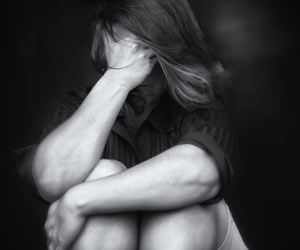These conclusions were reached by psychologists and doctors who studied the data of 844 undergraduate and graduate students aged 17 to 26 years.
The goal of the scientists was to evaluate the relationship between attitudes towards the past, present, and future, the quality of sleep and wakefulness, and the psycho-emotional state during covid isolation.
“It would seem logical to assume that during crises like the coronavirus pandemic, those who make short-term plans, in other words, live one day at a time, feel most comfortable. After all, psychological science knows that in times of uncertainty and unpredictability, those who can make quick decisions win. These tend to include those who enter puberty early, who are less likely to build long-term family relationships, who are prone to risky behavior, and neglect their health. However, our research showed that this hypothesis was not confirmed,” said Anna Pecherkina, head of the Department of pedagogy and psychology of education at Ural Federal University, co-research and co-author of the article.
Researchers have found that the experience of isolation is easier for people who are future-oriented and plan “long term,” those who are able to switch from short-term to long-term tasks, depending on their needs, and vice versa.
Usually, these are young people, distinguished by a positive attitude toward their past, who are more disciplined in their isolation mode. Sleep in such people is more effective due to synchronization with the biological clock.
Young men and women who treat their past negatively, demonstrate hedonistic behavior in the present and a fatalistic attitude to the future are endured and observe the isolation regime worse. Such people more often show signs of depression and suffer from anxious sleep.
“Signs of depression were observed in the majority of respondents. However, those who regarded isolation as a temporary challenge and focused on long-term tasks successfully adapted to covid restrictions and coped with this emotional state. Those who believed that “life was over” showed signs of depression more vividly,” explains Anna Pecherkina.
Source: Eurekalert



